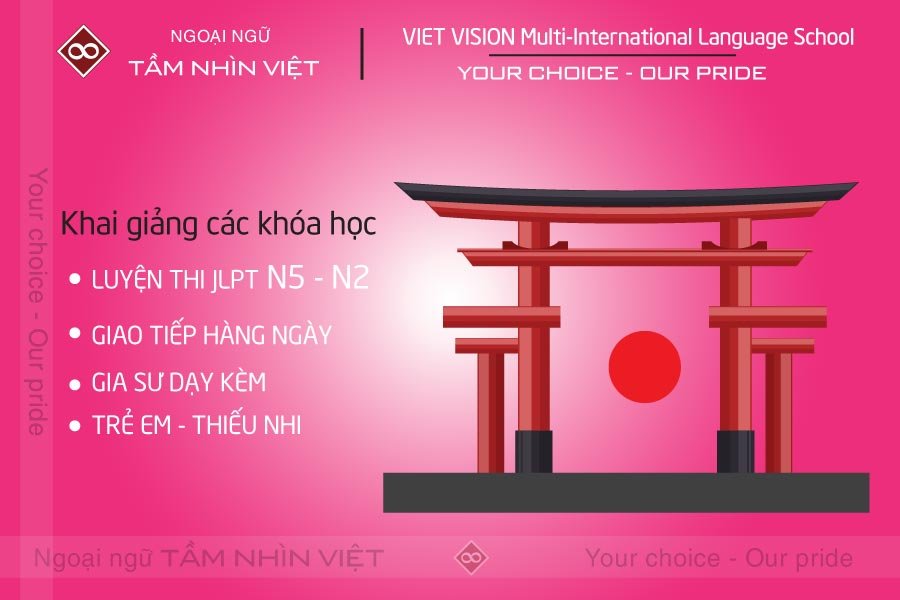Các bạn học ngữ pháp JLPT N3 tiếng Nhật sẽ cần hệ thống đầy đủ và chuyên sâu kiến thức trước kỳ thi để đạt điểm cao.
Hôm nay, chúng ta sẽ đi đến Bài 71 – Ngữ pháp JLPT N3 – がち (gachi)
Trong bài sẽ có nhiều câu ví dụ cho phần ngữ pháp để bạn có thể hiểu rõ hơn và dễ dàng tiếp thu hơn. Tuy nhiên, một điều lưu ý là bài học được thiết kế dành cho các bạn có nền tảng kiến thức tiếng Anh tốt. Nếu bạn nào không tự tin, có thể sử dụng ứng dụng Google Translate để dịch thành tiếng Việt nhé!
- Có thể bạn quan tâm: Khóa học tiếng Nhật theo yêu cầu (dạy kèm tại nhà hoặc trung tâm)

1. Giải thích ngữ pháp JLPT N3 – がち (gachi)
Meaning: Apt to do, tend to do
Formation:
Verb-ますstem + がちだ
Noun + がちだ
2. Các câu ví dụ thông dụng nhất
雪が降ると、電車は遅れがちだ。
The trains are usually late when it snows.
Yuki ga furu to, densha wa okuregachi da.
先日、病気がちのおばを見舞いに行った。
I came to visit my sick aunt yesterday.
Senjitsu, byouki gachi no oba o mimai ni itta.
結婚して何十年もたつと、結婚記念日さえ忘れがちになる。
You tend to forget your anniversary after many years of being married.
Kekkon shite nanjuu nen mo tatsu to, kekkon kinenbi sae wasure gachi ni naru.
何度も失敗をすると、また失敗をするのではないかと考えがちになる。
After you’ve failed many times, you tend to think whether you’re gonna fail again if you try.
Nando mo shippai o suru to, mata shippai o suru no dewa nai ka to kagae gachi ni naru.
「写真を撮ってもいいですか?」カメラを持ち上げて、彼が遠慮がちに頼んだ。
“can i take a picture?” he held the camera up and asked hesitantly.
Shashin o totte mo ii desu ka. kamera o mochiagete, kare ga enryogachi ni tanonda.
そういう事故はとかく起こりがちです。
That kind of accident happens quite often.
Sou iu jiko wa tokaku okorigachi desu.
彼は最近、体調を崩して、学校を休みがちです。
He hasn’t been to school lately due to his sickness.
Kare wa saikin, taichou o kuzushite, gakkou o yasumigachi desu.
ミナコは正直すぎて、友達との関係を悪くしてしまいがちだ。
Minako tends to alienate her friends by being too honest.
Minako wa shoujiki sugite, tomodachi to no kankei o waruku shite shimaigachi da.
今は、あまりに遠く進むので、実は地球を横断しているということを、忘れがちです。
Now, because it’s so quick, we can kind of forget we really are traveling across the world.
Ima wa, amari ni tooku susumu node, jitsu wa chikyuu o oudan shite iru to iu koto o, wasuregachi desu.
私のようなベビーブーム世代は、生活を仕事とそれ以外に分けたがり、同僚との付き合いは避けがちです。
Baby boomers like me tend to compartmentalize our lives into work and non-work and avoid socializing with our colleagues.
Watashi no you na bebiibuumu sedai wa, seikatsu o shigoto to sore igai ni waketagari, douryou to no tsukiai wa sakegachi desu.
礼儀正しい声はそれとわかるほどためらいがちで、かすかな南部訛りがあった。
The voice was noticeably hesitant, with a hint of a southern accent.
Reigitadashii koe wa sore to wakaru hodo tameraigachi de, kasuka na nanbu namari ga atta.
こうした諸要素を検討していると、意見の相違はあるものの相手にもプレッシャーがかかっており、義務も負っているという事実を見失いがちになる。
With all these elements to consider, it can be easy to lose sight of the fact that, across the divide, our counterparts have their own pressures and imperatives.
Kou shita shoyouso o kentou shite iru to, iken no soui wa aru mono no aite ni mo puresshaa ga kakatte ori, gimu mo otte iru to iu jijitsu o miushinaigachi ni naru.
米国内では選挙の年にありがちな政争が繰り広げられ、ワシントンは大騒ぎになっている。
In the u.s., with election-year politics swirling, washington is in an uproar.
Beikokunai de wa senkyo no toshi ni arigachi na seisou ga kurihirogerare, washinton wa oosawagi ni natte iru.
アミが口を押さえ、ためらいがちに一歩進み出た。目にしているものにすっかり心を奪われているらしい。
Ami covered her mouth and took a tentative step forward, clearly entranced by what she was seeing.
Ami ga kuchi o osae, tameraigachi ni ippo susumideta. me ni shite iru mono ni sukkari kokoro o ubawarete iru rashii.
内なる障壁は軽視されがちで、話題に上ることもめったにない。
Internal obstacles are rarely discussed and often underplayed.
Uchinaru shouheki wa keishi saregachi de, wadai ni noboru koto mo metta ni nai.
一般には連邦政府予算の最低でも四分の一くらいは対外援助に使われていると思われがちだが、実際には歳出一ドル当たりに占める外交開発援助の割合はわずか一セントに過ぎない。
Despite the popular belief that foreign aid accounted for at least a quarter of the federal budget, the truth was that for every dollar spent, just one penny went to diplomacy and development.
Ippan ni wa renpou seifu yosan no saitei demo yobun no ichi kurai wa taigai enjo ni tsukawarete iru to omowaregachi da ga, jissai ni wa saishutsu ichi doru atari ni shimeru gaikou kaihatsu enjo no wariai wa wazuka ichi sento ni suginai.
この種の自信喪失が女性にありがちな症状だ。
This kind of self-doubt is more common for females.
Kono tane no jishin soushitsu ga josei ni arigachi na shoujou da.
[がたい (gatai): hard to, difficult to](https://japanesetest4you.com/flashcard/learn-japanese- grammar-n2-%e3%81%8c%e3%81%9f%e3%81%84/)
[にくい (nikui): difficult to, hard to](https://japanesetest4you.com/flashcard/learn- jlpt-n4-grammar-%e3%81%ab%e3%81%8f%e3%81%84-nikui/)
[やすい (yasui): easy to, likely to](https://japanesetest4you.com/flashcard/learn- jlpt-n4-grammar-%e3%82%84%e3%81%99%e3%81%84-yasui/)
Kết thúc bài học
Như vậy, chúng ta đã kết thúc Bài 71 – Ngữ pháp JLPT N3 – がち (gachi)
Hãy tiếp tục theo dõi các bài học ngữ pháp JLTP N3 tiếp theo tại đây: Tổng hợp các bài học ngữ pháp tiếng Nhật JLPT N3
BONUS: Các bạn có thể bổ sung thông tin quan trọng trong kỳ thi JLPT 2020 “TẠI ĐÂY”
Cảm ơn bạn đã quan tâm và theo dõi bài học!
